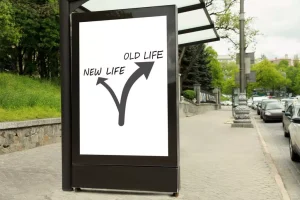
During rehab, many people create specific plans for risky situations or times when they feel tempted to use drugs or drink alcohol. Restoring normal brain function is difficult, which is why many people relapse during recovery. Depending on the duration and severity of a person’s addiction, it can take months or years of abstinence for the brain to recover from substance abuse.

How to Get Your Recovery Back on Track
Over time, these dopamine surges teach the brain to seek the drug or alcohol any time the user encounters a trigger. Distraction is a time-honored way of interrupting unpleasant thoughts of any kind, and particularly valuable for derailing thoughts of using before they reach maximum intensity. One cognitive strategy is to recite a mantra selected and rehearsed in advance. A behavioral strategy is to call and engage in conversation with a friend or other member of your support network. Getting out of a high-risk situation is sometimes necessary for preserving recovery. It’s possible to predict that some events—parties, other social events—may be problematic.

Warning Signs of Cocaine Abuse

At All Points North, our in-person and virtual programs emphasize connection, both with caring therapists and supportive peer groups. Scheduled check-ins, therapy appointments, mental health resources, and a network of support help increase accountability and spot relapse behaviors before things spiral out of control. Realize that relapse is often a part of the recovery process and that, even though it’s a setback, there’s no reason to feel guilt and shame. Learn to forgive yourself for relapsing and find self-love to try again. It often begins with a person’s emotional and cognitive state.
The Role of Medication in Addiction Recovery
But sometimes people don’t even realize they took fentanyl in counterfeit Adderall or Xanax pills or while smoking meth. In the face of a craving, it is possible to outsmart it by negotiating with yourself a delay in https://ecosoberhouse.com/ use. It hinges on the fact that most cravings are short-lived—10 to 15 minutes—and it’s possible to ride them out rather than capitulate. Choose to get help, even though shame often deters people from doing so.
- As a result, those recovering from addiction can be harsh inner critics of themselves and believe they do not deserve to be healthy or happy.
- Therapy sessions are instrumental in developing new coping skills and providing personalized guidance, while support networks offer encouragement and understanding.
- After a relapse, seeking professional help is a critical step on the path to recovery.
- Scheduled check-ins, therapy appointments, mental health resources, and a network of support help increase accountability and spot relapse behaviors before things spiral out of control.
- You will strengthen your bonds, which can support you on your path to lifelong recovery.
It may also involve normalizing occasional thoughts and relapse, and learning methods to let go of them quickly. During this stage, a person may not be thinking about using drugs or alcohol, but their emotions may be placing them in jeopardy of relapse. In fact, between 40% to 60% of people with a substance use disorder relapse at some point in their recovery journey. Positive moods can create the danger of relapse, especially among youth.

Coping With a Relapse
While you may not have all the answers right now, retaining a strong desire to move past this is vitally important to your recovery. Learn about opportunities to help change the conversation around mental health. In our addiction, honesty gets lost along the way, so it is especially important to stay honest and transparent in recovery. Not talking about it with another trusted person will cause it to fester like an open sore. By Geralyn Dexter, PhD, LMHCDexter has a doctorate in psychology and is a licensed mental health counselor with a focus on suicidal ideation, self-harm, and mood disorders.
Some people can overcome physical dependence to a drug without committing to living a healthy life in recovery. Dry drunks, for example, are sober people in recovery who continue to engage in risky behaviors that increase their risk for relapse. Signs of a dry drunk include attending bars, refusing to seek therapy and obsessing over alcohol. Though relapse can be a traumatic experience, it gives you the opportunity to learn about yourself, your disease and what’s required to take back control. With the help of your social support network and addiction treatment specialist, you can reflect on what your relapse has taught you and what you can do to improve your health.
- Take an honest account of what happened before and during your relapse – remember, relapse happens before you pick up.
- If you start to overdose, naloxone can reverse an opioid overdose when someone gives it to you in time.
- This is especially the case with relapse among addicted youth.
- Whether you decide to enter intensive drug treatment, or you implement an outpatient care plan, you need to be prepared for struggle and discomfort.
- While most people can achieve lasting recovery with the help of addiction treatment services, relapse is often part of that process.
For example, they may choose to smoke marijuana to relieve stress after a year of sobriety or have a glass of wine with friends because they feel like they can manage it without going overboard. A “freelapse”, on the other hand, is the colloquial term for an accidental relapse that happens when a person unintentionally uses drugs or alcohol. This could happen when what to do after a relapse they mistakenly drink alcohol thinking they were being given a non-alcoholic beverage at a party. If you can predict the possible challenges you will face, your mind will be better equipped to handle them in healthy and constructive ways when they occur. Use what you’ve learned from your relapse to plan how you will face challenges as they continue to arise.
Know your triggers
If paying the bills makes you too cranky, be ready to call your sponsor when they’re due. If you are experiencing a medical emergency and need immediate care, call 911. When an addicted person acts on their craving, a surge of neurotransmitters causes them to feel pleasure.
- That’s about the same as relapse rates among people with asthma or high blood pressure if they stop taking their medicine.
- Furthermore, acamprosate is also used to avoid relapse in alcohol use, helping to maintain abstinence.
Developing Healthier Habits
When meeting a potential therapist, consider asking about their experience with addiction and relapse, their approach to treatment, and how they handle the integration of new coping strategies. Those in recovery need to have access to a professional who can provide personalized guidance and support as they navigate the complex journey of recovery after a relapse. After a relapse, seeking professional help is a critical step on the path to recovery. Professional intervention can take various forms, from therapy to medication, tailored to individual needs. Engaging in self-care practices, such as exercise and hobbies, can further aid in processing emotions healthily and maintaining a balanced lifestyle post-relapse.
